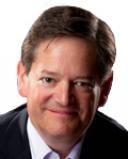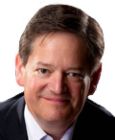Friends
Roger Ebert’s Secret of Success
Which way to go when looking for freedom?
Posted April 17, 2013
John Krakauer’s spellbinding book Into the Wild tells the true story of Christopher McCandless, a top student athlete who graduates from Emory University, gives his $24,000 in savings to charity, abandons everything else, and hitchhikes to Alaska to live in the wilderness. Renaming himself Alexander Supertramp, McCandless roams at will—“Ultimate freedom.” It’s Walden Pond with fewer trees and cooler weather.
After two years, McCandless embarks on what he calls “the final and greatest adventure. The climactic battle to kill the false being within and victoriously conclude the spiritual pilgrimage.” Speaking of himself, McCandless writes, “Ten days and nights of freight trains and hitchhiking bring him to the Great White North. No longer to be poisoned by civilization he flees, and walks alone upon the land to become lost in the wild.”
McCandless does what he says he will do: he flees, and he becomes lost. He eventually stumbles upon an abandoned bus, where he holes up and lives out the final, brutal weeks of his quixotic quest.
In Roger Ebert’s review of Sean Penn’s poignant movie of Into the Wild, Ebert wrote, “This is a reflective, regretful, serious film about a young man swept away by his uncompromising choices. Two of the more truthful statements in recent culture are that we need a little help from our friends, and that sometimes we must depend on the kindness of strangers. If you don't know those two things and accept them, you will end up eventually in a bus of one kind or another.”
In the wake of Ebert’s recent death, I’ve been thinking about his influence as a critic. Some years ago, Forbes magazine described Ebert as “the most powerful pundit in America.” My own view is that Ebert became the most powerful pundit in America because he understood deeply what he said about Into the Wild: we need help from our friends, and we depend upon the kindness of strangers.
In August of 2009, Ebert wrote a column with the following title: “My name is Roger, and I’m an alcoholic.” He began the column by describing a turning point he had reached 30 years before. He wrote: “In August 1979, I took my last drink. It was about four o'clock on a Saturday afternoon, the hot sun streaming through the windows of my little carriage house... I put a glass of scotch and soda down on the living room table, went to bed, and pulled the blankets over my head. I couldn't take it any more.”
Shortly thereafter, Ebert began to attend meetings of Alcoholics Anonymous. Though skeptical at first, his wariness soon turned into profound gratitude. “I came to love the program and the friends I was making through meetings,” he said, “some of whom are close friends to this day. It was the best thing that ever happened to me.”
Sometimes we need to accept help from friends or depend on strangers. Sometimes we help them in return. People who try to go it alone end up lost or left behind. The truth is that we’re better off when we join together.
In fact, putting the wellbeing of others ahead of our own is the best way to ensure success. In his book The Half-Life of Facts, Samuel Arbesman cites a study that examined the publishing history of Nobel laureates and compared their publications with those of their scientific peers who had not won the Nobel Prize. The study found “that Nobel laureates are first authors of numerous publications early in their careers, but quickly begin to give their junior colleagues first authorship. On the other hand, those peers of Nobel laureates who were not as successful tried to maintain first authorship for themselves far more often, garnering more glory for themselves. By their forties, Nobel laureates are first authors on only 26 percent of their papers, as compared to their less accomplished contemporaries, who are first authors 56 percent of the time.” Arbesman concludes, “Nicer people are indeed more creative, more successful, and even more likely to win Nobel prizes.”
Jesus once told a parable about a sower who was sowing seed. Some of the seed fell on hard ground and didn’t sprout. Some fell on thorny ground and was choked by weeds. Some fell on stony ground and was eaten by birds. But some fell on good ground and grew, returning to the sower thirty times, or sixty times, or even a hundred times what he sowed.
Take whatever you have, and whatever you know, and whatever you love, the parable suggests, and give it away: plant it everywhere. If you keep it to yourself, your treasure will spoil and be of no use to you or anyone else. If you lavish it on others, it will take root, and grow, and return to you in abundance.
One of Roger Ebert’s all-time favorite movies was Casablanca. At the outset of the movie, it appears that Rick, the world-weary proprietor of the local café, is unredeemable. “What is your nationality?” the German Strasser asks Rick, and Rick replies, “I'm a drunkard.” Rick states his personal code without hesitation or apology: “I stick my neck out for nobody.”
By the end of the movie, however, everyone ends up sticking out their necks for everyone else. Ebert says, “There is actually no reason why Laszlo cannot get on the plane alone, leaving Ilsa in Casablanca with Rick, and indeed that is one of the endings that was briefly considered. But that would be all wrong; the “happy” ending would be tarnished by self-interest, while the ending we have allows Rick to be larger, to approach nobility.”
At its best, life is a journey toward what McCandless called ultimate freedom. But this journey takes you toward other people, not away from them. People who understand this principle and live in light of it won’t always win Pulitzer prizes, as Ebert did, or Nobel prizes. But they will win the only prize that truly matters in the end: the reward of living in freedom—open to the help of friends and to the kindness of strangers.




